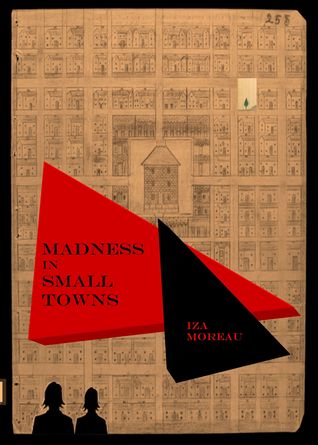Sorry about not posting in a while, I’ll be putting up a review later today, but first I wanted to share an article I just stumbled upon.
In my high school Lit class, I used to amuse myself by finding or inventing gay and lesbian subtext in everything we read. My best friend and I interpreted T.S. Eliot’s poem “The Love Song of J. Alfred Prufrock” as a gay love story. I still can’t read it any other way. Now, years later, I just read an article about Eliot’s connection to lesbian literature.
Apparently, Eliot fought hard to get the lesbian classic Nightwood published, even when no other publisher would touch it for the “obscene” content. Here’s the article.
What do you think of Eliot, usually depicted as quite grim and conservative, being shown to have been this radical promoter of lesbian fiction?



Porter says
I too read that poem and considered a queer undercurrent. It was brought up in class. It seems incredibly likely. My English prof was prompted to say “Well, you all probably know this but I’m gay…” and I think he did say that Eliot was homosexual. I could be wrong though–the shock of having my teacher come out in front of our entire class threw me off, so they could have said that Eliot was notoriously anti-gay and I might not have noticed.
Danika says
Wow, I definitely would have been thrown off, too. That’s a pretty brave thing for him to do.
Yeah, we ended up stumbling on some stuff that made it seem like he was queer… apparently Ezra Pound edited out some of his most gay-suggestive lines, which makes me suspicious, but it’s all guesses, really.
Kathryn Capizzi says
t.s. eliot was grim and conservative but he was also quite involved in the queer side of literary modernism. actually, he talked barnes into editing out a lot of the more explicit references to nora and robin’s sexual relationship, and there is currently a version of nightwood edited by cheryl j plumb that is taken from an earlier draft that supposedly (i haven’t yet read this version) is much more explicit about their relationship. beside his relationship with djuna barnes, he also had close professional ties with virginia woolf as well as, to a lesser extent, e.m. forster. however, similar to forster and many male gays of the time, he was at times an outspoken misogynist, and was deeply influenced by ancient greek concepts of homosexuality, namely that men are more spiritually enlightened beings and that women are base, so that love between two men would be considered heavenly and love between two women completely irrelevant. in virginia woolf’s novel the waves, eliot is represented by the character of louis, whose sexuality in the novel nowadays could be described as bisexual or queer, contrasting with the strictly gay character neville. louis is often grouped with rhoda, who is a lesbian even though that wasn’t really the point of the character (in earlier drafts rhoda was explicitly lesbian) and they are the outcasts of their social circle. it’s a big web of queers! one warning, i am simplifying things a lot/heavily summarizing these complex people and their relationships to each other. long story short though, eliot and barnes were buddies, eliot’s statement that nightwood is a novel for poets has greatly affected the book’s reception over the ensuing decades, and it is completely legitimate to pick up on queer vibes in eliot’s work. he was definitely a misogynist, but it’s almost impossible to find male writers/poets/artists that aren’t in some way.
Kathryn Capizzi says
ack i didn’t realize this post was so old!
Danika @ The Lesbrary says
No, no, I’m really glad you commented! I’m still interested in this! And that is all really fascinating! I had no idea those authors were so interconnected, though I should have guessed. (If queer circles are so overlapping now, it could only be more so then.) It’s too bad, though not surprising, that he was a misogynist. I could pick up bits of that from his poems.
I haven’t read Nightwood (or any Virginia Woolf, to my great shame) yet, but now I’ll have to check out the one edited by Plumb. It would be interesting to compare them.